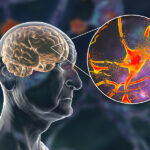By David Blyweiss, M.D., Advanced Natural Wellness
April 13, 2020
Recently the mother of one of my patients passed away. Debbie was understandably upset. She was also confused…
You see, her mom had been in a nursing home with Alzheimer’s disease. Over the years, she had suffered from many other health problems including heart disease, diabetes and even a few bouts with aspiration pneumonia.
So, Debbie was shocked when she received the death certificate and discovered her mother’s cause of death was listed as A) Severe Dementia and B) Failure to Thrive.
Debbie had expected to see something like cardiac arrest, respiratory failure, or anything else that would make more sense. But no. It was the Alzheimer’s that was blamed for her death.
How could something Debbie thought of as “memory loss” be the cause of her mother’s passing?
You see, while Alzheimer’s and dementia are both widely recognized for causing memory loss, they also take a physical toll on the body.
Many of these patients are bedridden, which increases their risk of blood clots, bedsore skin infections and sepsis. They lose their appetite, experience weight loss and end up with malnutrition. This leads to a weakened immune system.
MD Exposes the Hidden Danger to Your Eyes

When your eyesight starts to fail, it's a real problem. Suddenly you can't go to the grocery store... you can't get to the doctor if you have an emergency... you can't meet your friends for dinner…
Your "regular" doctor doesn't have time to keep up with the latest research. And the same goes for eye doctors. They go to school to learn how to fit you for glasses and contacts, but have no way of preventing the damage and loss of eyesight that threatens your freedom and independence.
Let me show you something that explains a LOT about how your eyes work.
In my FREE Special Report, I'll show you a HUGE, untapped resource for your eyes that safely and naturally restores clear, effortless eyesight.
Click here to get started...
Damage to certain parts of the brain can affect their ability to swallow. In these cases, a patient might inhale their food. This deposits food particles in their lungs and is very common among dementia patients. It results in a lung infection called aspiration pneumonia.
When a patient dies from these types of complications, the cause of death is often listed as Alzheimer’s disease or dementia.
So yes. Alzheimer’s disease and dementia can lead to death. But it doesn’t have to.
I would be much happier if all of my patients took active steps to prevent Alzheimer’s and dementia from occurring in the first place. Why? Because…
Alzheimer’s Disease and Dementia are Preventable!
While these conditions may be the underlying cause of fatal health issues – there are also underlying causes of dementia and Alzheimer’s.
Diabetes, insulin resistance, cardiovascular disease and arterial plaque all contribute. Certain medications, particularly anticholinergic drugs, also increase the risk. But there’s a simple way for you to side-step these threats.
Feed your body the foods it needs to thrive. Cut your intake of sugars and high glycemic carbohydrates. Instead, opt for a modified Mediterranean style diet. This includes plenty of fresh, organic fruits, vegetables, extra virgin olive oil, nuts and wild-caught fish. Meat, grains and dairy should be limited.
This way of eating goes to work immediately to support a healthy insulin and glucose response, promote a healthy cardiovascular system and protect your brain. It boosts brain volume and cuts your chances of cognitive decline and dementia as you age.
Resolve your sugar and insulin problems. If diet alone isn’t enough to control your blood sugar, try these supplements:
The World's Quickest Solution for Ending Prostate and Urinary Misery
This has recently been revealed to be one of the only real breakthroughs in prostate health.
The seeds of a strange fruit (sometimes called "Chinese Apples") hold powerful phytonutrients that are a revolution in prostate health.
In fact, UCLA and Veterans Administration research have now proved this to be true.
Not only that, but it may be the worlds quickest solution for ending prostate misery.
Simply stated, these phytonutrients represent a huge step beyond beta sitosterol, saw palmetto, and other phytosterols alone.
Simply click HERE if you want to have fast prostate relief...restful, uninterrupted sleep...no more constant "urges to go"...enhanced virility...and optimal prostate support for life.
- Chromium picolinate, between 400 and 600 mcg a day, will make your cells more receptive to insulin.
- Chlorogenic acid (found in green coffee extract) will block sugar absorption in your intestines. It also reduces the production of glucose after meals and improves insulin sensitivity.
- Get your vitamin D levels tested. Even if you’re only moderately deficient in vitamin D, it could increase your risk of dementia and Alzheimer’s by more than 50%. If you’re severely deficient, it can more than double your odds. .Look to getting your level to 65.
If you are have less than 30 ng/ml of Vitamin D3, then take 5,000 IU of D3 in the cholecalciferol form each day. Retest in three months. Otherwise, take 1,000 to 2,000 IU to maintain healthy levels. If you can find a combination with other fat soluble vitamins A and or Vitamin K2, those are best.
Exercise your way to good health and mental stability. Regular physical activity helps control blood sugar, boosts cardiovascular health and helps you maintain a healthy weight.
A good workout also reduces brain shrinkage and increases something called BDNF, brain derived neurotrophic factor. This protein encourages the growth of new neurons and improves their function. BDNF also helps the brain make the right connections more easily and readily. To exercise, I recommend my patients go for a 20 walk in any direction each day – then walk back.
Take part in daily intermittent fasting. Eat all of your meals within an eight hour time window each day. Then, fast for the other 16 hours. This will trigger a process called autophagy, which rids your cells of waste and helps them work more efficiently. It’s a great way to lose weight and promote healthy glucose metabolism.
Give your brain a good night’s sleep. When you sleep your brain clears itself of toxic waste products, including beta amyloid. But every time you wake up, this process turns itself off and starts accumulating more trash. So adopt good sleep habits and aim for a good eight hours every night.
SOURCES:
Alzheimer’s Association. 2019 Alzheimer’s Disease Facts and Figures. Alzheimers Dement 2019;15(3):321-87
Bharadwaj P, et al. The Link between Type 2 Diabetes and Neurodegeneration: Roles for Amyloid-β, Amylin, and Tau Proteins. J Alzheimers Dis. 2017;59(2):421-432.
Ferreira LSS, et al. Insulin Resistance in Alzheimer’s Disease. Front Neurosci. 2018; 12: 830.
Xiang J. Carotid atherosclerosis promotes the progression of Alzheimer’s disease: A three-year prospective study. Exp Ther Med. 2017 Aug;14(2):1321-1326.
Stampfer MJ. Cardiovascular disease and Alzheimer’s disease: common links. J Intern Med. 2006 Sep;260(3):211-23.
Babio N, et al. Mediterranean diets and metabolic syndrome status in the PREDIMED randomized trial. CMAJ, October 2014.
Sofi F, et al. Effectiveness of the Mediterranean diet: can it help delay or prevent Alzheimer’s disease? J Alzheimers Dis. 2010;20(3):795-801.
Solfrizzi V, et al. Mediterranean diet in predementia and dementia syndromes. Curr Alzheimer Res. 2011 Aug;8(5):520-42.
Lau FC, et al. Nutrigenomic basis of beneficial effects of chromium(III) on obesity and diabetes. Mol Cell Biochem. 2008 Oct;317(1-2):1-10.
Thom, E. The Effect of Chlorogenic Acid Enriched Coffee on Glucose Absorption in Healthy Volunteers and Its Effect on Body Mass. J Int Med Res. 2007 Nov-Dec;35(6):900-8.
Santana-Gálvez J, et al. Chlorogenic Acid: Recent Advances on Its Dual Role as a Food Additive and a Nutraceutical against Metabolic Syndrome. Molecules. 2017 Feb 26;22(3). pii: E358.
Littlejohns TJ, et al. Vitamin D and the risk of dementia and Alzheimer disease. Neurology. 2014 Sep 2;83(10):920-8.
Tan ZS, et al. Physical Activity, Brain Volume, and Dementia Risk: The Framingham Study. J Gerontol A Biol Sci Med Sci. 2017 Jun 1;72(6):789-795.
Erickson KI, et al. Exercise training increases size of hippocampus and improves memory. Proc Natl Acad Sci U S A. 2011 Feb 15;108(7):3017-22.







